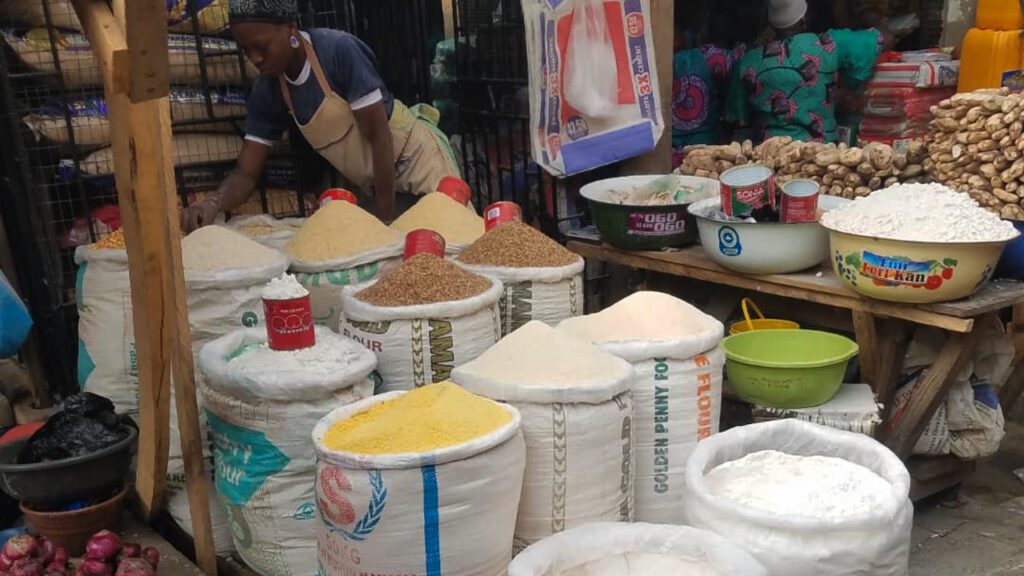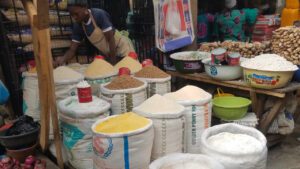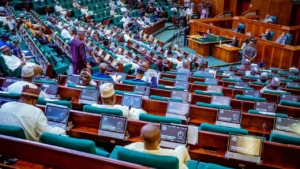Nigeria’s inflation rate fell sharply to 18.02 percent in September 2025, marking the biggest drop in recent years and the sixth consecutive month of disinflation, according to the latest data from the National Bureau of Statistics (NBS).
The NBS Consumer Price Index (CPI) report released yesterday showed that headline inflation declined by 210 basis points from 20.12 percent in August to 18.02 percent in September. The report attributed the improvement to a steady decline in food prices, a more stable naira, and lower transportation and energy costs.
Food inflation, which had driven much of the country’s price pressures in previous months, recorded a steep decline of 500 basis points, falling from 21.87 percent in August to 16.87 percent in September. This drop was largely due to a fall in the average prices of maize, garri, beans, millet, potatoes, onions, eggs, tomatoes, and fresh pepper, among other staples.
Core inflation, which excludes food and energy items, also eased to 19.53 percent from 20.33 percent in August, reflecting broader price moderation across consumer goods and services.
According to the NBS, the decline was supported by improved logistics, better energy supply, and lower transportation costs. The bureau noted that the average annual rate of food inflation for the twelve months ending September 2025 stood at 24.06 percent — 13.47 percentage points lower than the 37.53 percent recorded in September 2024.
However, inflation remained uneven across the country. The highest all-items inflation rates were recorded in Adamawa (23.69%), Katsina (23.53%), and Nasarawa (22.29%), while Anambra (9.28%), Niger (11.79%), and Bauchi (12.36%) posted the lowest figures.
Economists described the sustained disinflation trend as a reflection of improving macroeconomic stability. They, however, called for stronger fiscal policies to ensure the gains translate into better living conditions for Nigerians.
Chief Executive Officer of the Centre for the Promotion of Private Enterprise (CPPE), Dr Muda Yusuf, said the decline in inflation signaled policy traction and improving macroeconomic fundamentals. He noted that while the trend is encouraging, government must focus on policies that improve purchasing power and reduce the cost of living.
“The gains achieved so far must therefore be consolidated through decisive and well-targeted policy actions,” Yusuf said. “The next phase of reform must prioritize welfare-focused measures that deliver tangible relief to citizens.”
He emphasized the need for policies that enhance productivity, stabilize prices, and reduce the cost of doing business. According to him, with consistency and structural reforms, Nigeria can achieve single-digit inflation in the medium term, strengthening growth and public confidence.
The NBS report came just a day after the International Monetary Fund (IMF) upgraded Nigeria’s economic growth forecast from 3.5 percent to 3.9 percent for 2025, and 4.1 percent for 2026, citing improved macroeconomic conditions and fiscal reforms.
Analysts at SCM Capital also noted that the disinflation trend reflected the combined impact of foreign exchange stability, increased food supply during harvest season, and moderation in input costs. They projected that inflation would decline further in October as the harvest continues and the naira remains stable.
“With inflation easing for six consecutive months, the Central Bank of Nigeria’s Monetary Policy Committee may consider another rate cut to stimulate growth,” SCM Capital stated.
Similarly, analysts at CardinalStone described the moderation in inflation as positive for Nigeria’s currency valuation. They said the decline in food inflation in September was unusual compared to recent years but mirrored earlier trends between 1996 and 2005, when food security was stronger.
CardinalStone projected that the naira would close the year between N1,400 and N1,450 per dollar, supported by a steady build-up in foreign reserves and current account surplus. The firm also predicted a 100-basis-point cut in the Monetary Policy Rate (MPR) to 26 percent at the CBN’s next policy meeting.
According to analysts, the disinflation momentum is likely to persist through October, provided the government sustains current reforms and ensures continued stability in the food and forex markets.
A 9am News report notes that while inflation easing offers hope for economic recovery, the challenge remains ensuring that ordinary Nigerians feel the impact through lower food prices, affordable transport, and improved household welfare.
Stay tuned to 9am News Nigeria for more Breaking News, Business News, Sports updates And Entertainment Gists.
















